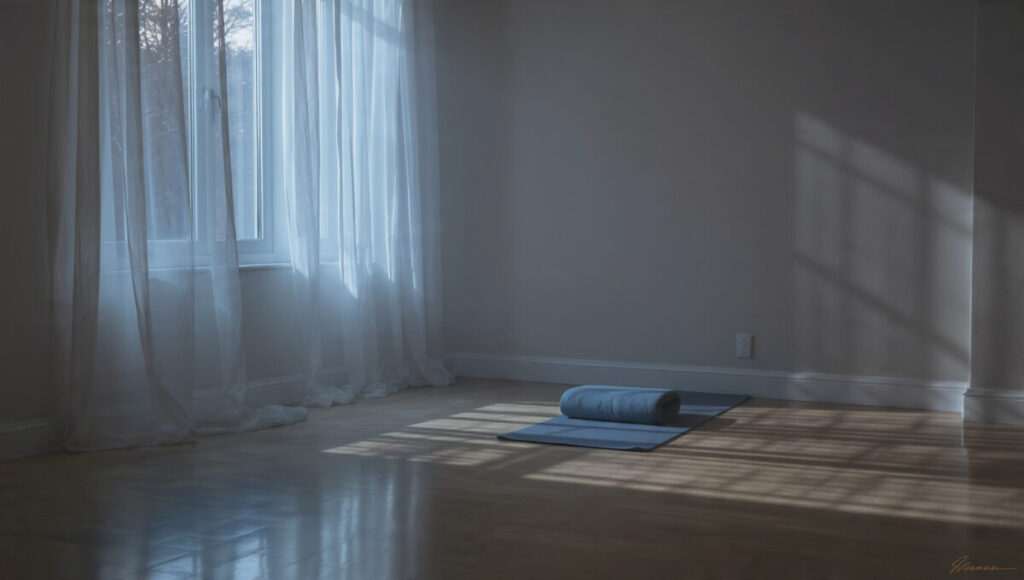- Home>
- Blog>
- Personal Development & Psychology>
- The Soul of Discipline: Why Your Spiritual Practice Needs Structure
The Soul of Discipline: Why Your Spiritual Practice Needs Structure
- Home>
- Blog>
- Personal Development & Psychology>
- The Soul of Discipline: Why Your Spiritual Practice Needs Structure
Let’s be honest. The word « discipline » probably makes you flinch. It conjures images of military boot camps, joyless deprivation, and a rigid, unforgiving schedule. It feels cold, harsh, and distinctly « un-spiritual. »
We are intuitive, flowing, magical beings! We want to follow the whispers of the moon and the pull of our hearts, not a spreadsheet. We crave connection, not correction. We believe our magic lies in our freedom, our spontaneity, and our ability to be in the moment. Discipline, we think, is the opposite of that. It’s the cage that smothers the wild bird of our intuition.
But what if we’ve been wrong?
What if this word we’ve associated with punishment is actually the secret ingredient to a deeper, more profound spiritual connection? What if discipline, when reframed, isn’t a cage at all?
What if it’s the nest?
Why We Resist What We Need
Our resistance is understandable. We live in a world that worships « the hustle » and equates self-worth with productivity. We’re burned out from a lifetime of « shoulds. » So, when we turn to our spiritual path, we crave relief. We want softness, acceptance, and flow. The last thing we want is another set of rules.
But a life without any structure isn’t freedom; it’s chaos. And chaos is exhausting.
It’s the feeling of wanting to meditate but never finding the time. It’s buying the tarot deck and letting it gather dust. It’s « forgetting » to charge your crystals under the full moon again. It’s the yearning for a deeper practice, followed by the familiar sting of guilt when another day passes without it.
This chaos doesn’t feel magical. It feels stressful. An intuitive gift, untended, is like a garden full of potential. But a garden left entirely to « flow » will be choked by weeds. It needs tending. It needs loving, consistent attention. That, right there, is the heart of spiritual discipline.
Discipline vs. Devotion: A Change in Perspective
The solution isn’t to force ourselves into a practice that feels like a punishment. The solution is to change the energy behind the word. Let’s stop using the word « discipline » and start using the word « devotion. »
- Discipline is what you have to do. Devotion is what you get to do.
- Discipline feels like a joyless chore. Devotion feels like a sacred privilege.
When you brush your teeth, you don’t do it out of a passionate love for minty paste. You do it as an act of loving devotion to your future self, the one who wants to keep her teeth. It’s a simple, non-negotiable act of maintenance.
Your spiritual practice deserves at least the same level of commitment.
Viewing your habits as acts of devotion transforms them. Making your morning tea is no longer a mundane task; it’s a 3-minute ritual to honor the element of water. Pulling a daily oracle card isn’t another thing on your to-do list; it’s an act of devotion to your own intuition. When you are devoted to something, you show up for it. You create space for it. You honor it.

Building the Vessel for Your Magic
Here is the most important secret about habits and intuition: Your intuition needs a container to flow.
Think of your intuitive power, your psychic energy, as wild, formless water. Water is powerful, but without a container, it’s just a puddle. It spreads thin, evaporates, and doesn’t make much of an impact.
To be effective, water needs a channel. It needs a cup to be held, a pipe to be directed, or a riverbed to gain momentum and power. Your daily habits—your sacred, devoted discipline, are the riverbed.
A consistent 5-minute meditation, even when you « don’t feel like it, » carves the channel deeper, day by day. Journaling three sentences every night, even when you’re tired, is the act of building the cup.
You cannot expect to tap into your deep intuition « on command » in a crisis if you never practice listening in times of peace. The magic isn’t in one explosive 3-hour ritual once a year. The magic is in the 5-minute practice, repeated 365 times.
Discipline is the structure that holds the sacred. It focuses your energy, allowing you to build from a puddle into a powerful, flowing river.

From Mundane Habits to Magical Rituals
So, how do we start building this vessel without it feeling like a chore? We start by infusing our existing, mundane habits with magical intention. You don’t need to add more to your day. You just need to transform what’s already there.
- Do you drink coffee or tea? That is now your « Ritual of Intention. » As you stir your cup, stir clockwise to draw in energy. Stir counter-clockwise to banish fatigue. Hold the warm mug and take three conscious breaths.
- Do you take a shower? That is your « Ritual of Cleansing. » As the water washes over you, visualize it as pure white light, washing away not just physical grime, but any energetic gunk or negative thoughts.
- Do you tidy your desk? That is your « Ritual of Clearing. » You are not just organizing « stuff »; you are actively clearing the energetic pathways of your home to make space for clarity and peace.
Intention is the switch that turns a habit into a ritual. And a ritual, repeated with devotion, becomes the foundation of your entire spiritual life.
The Power of the Energetic Footprint
Often, we go too big, too fast. We declare, « I’m going to meditate for 30 minutes every single day! » We do it for three days, get overwhelmed, miss one day, and then quit for six months, buried in shame. This « all or nothing » thinking is the enemy of devotion.
The universe does not respond to the duration of your effort. It responds to the frequency of your intention.
A one-minute habit, done daily, carries a much more powerful energetic footprint than a one-hour habit done sporadically. Why? Because a daily, one-minute habit sends a clear, consistent signal: « I am showing up. I am devoted. I am ready to receive. »
Start ridiculously small. We call this the « tiny habit. »
- Want to meditate? Sit on your cushion for 60 seconds. Just sit.
- Want to journal? Write one sentence: « Today I feel… »
- Want to connect with your tarot deck? Just shuffle it.
This feels so small, it’s impossible to fail. And that’s the point. You are building momentum. The act of consistency is its own form of magic. It is the compound interest of the soul.
Compassion, Not Perfection: The 24-Hour Rule
You will miss a day. Let’s just accept that right now. You are a human being living a messy, complicated, beautiful life. You will get sick, you will be tired, you will have a deadline. You will miss your new, sacred habit.
And in that moment, you have a choice.
The old model of « discipline » meets this moment with shame. « You failed. You’re not good at this. You might as well just quit. »
The new model of « devotion » meets this moment with compassion. « Ah, I missed my practice. That’s interesting. I must have really needed the rest. I will show up for myself tomorrow. »
This is the most critical part of the entire practice. The real discipline is not about being perfect. The real discipline is about how quickly you return after you fall, without judgment. Adopt the « 24-Hour Rule. » You can miss one day. You cannot miss two. This isn’t a punishment. It’s a promise. The practice is returning to the meditation.
Spiritual discipline is the ultimate act of self-love. It is the strong, sacred container you build to hold your intuitive gifts. It is the devotion of the gardener, tending the soil so the wild, magical flowers can bloom.
What if I miss a day of my spiritual practice?
The practice isn’t about perfection; it’s about compassion. Instead of shame, meet a missed day with understanding. The true discipline is returning to your practice the next day (the « 24-Hour Rule ») without judgment.
How do I make a habit feel spiritual?
The switch is intention. A mundane habit (like making tea) becomes a magical ritual when you infuse it with intention, such as by consciously honoring the water element or stirring clockwise to invoke positive energy.
Why is spiritual discipline important for intuition?
Discipline builds the « container » for your intuition. A consistent daily practice, even a small one, carves a reliable channel (like a riverbed) that allows your intuitive power (the water) to flow with focus and strength.

